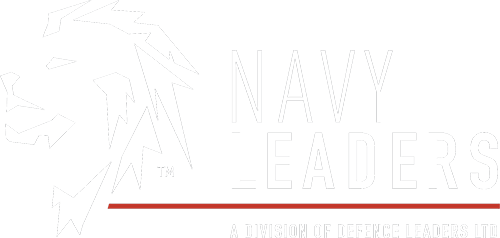14 Oct 2022
U.S. Navy Seeks 100-USV Fleet Patrolling Middle East Waterways by Next Summer
)
Originally posted on Sea Power Magazine
The U.S. Navy hopes to have a fleet of 100 unmanned service vessels (USVs) patrolling the waterways of the Middle East region by the summer of 2023, said Vice Adm. Brad Cooper, commander of U.S. Naval Forces Central Command, during a media roundtable on Oct. 12.
Cooper said that he estimates about 20% of those USVs to be controlled by the United States, and the remaining 80% to be controlled by countries in the region.
This fleet of USVs will “map the pattern of life that’s happening around them” throughout the region,” he said. When this network spots something different in the pattern, they’ll take pictures and alert a U.S. Navy command center where a human being can make a decision about how to use that information.
This is enabled by the use of artificial intelligence (AI), which allows the Navy to monitor the thousands of ships that are underway in the region at any given time — something human beings could not do on their own, Cooper said.
“We can use manned ships much more efficiently, much more effectively,” he said.
Cooper said he has seen a growth in the practicality of USVs and AI to enhance the Navy’s control over the region.
“There’s no single navy alone that can patrol [the waters around the Arabian peninsula],” he said. “We all know the criticality of the waters to the greater flow of commerce throughout the region, and so we think the best way to cover that and expand maritime domain awareness is … [by] using unmanned sensors through the theater along with AI.”
Cooper also noted that U.S. Naval Forces Central Command has been engaged in other activities in the region, calling the two most important initiatives “accelerating innovation” — which involved the aforementioned USV efforts — but also “strengthening partnerships.”
He pointed to initiatives by the Navy such as the Combined Maritime Forces and the International Maritime Security Construct, which are consortiums that gather nations in the region to cooperate with the Navy in achieving the sea service’s objectives. He also brought up the IMX exercise, an 18-day biennial naval training event led by the command that took place earlier this year and drew participation from dozens of countries.
“We lead two of the largest coalition task forces in the world — each of them will grow in membership and partnership,” Cooper said, noting that in 2021 the command did 33 exercises with countries in the region and will double that figure by the end of this year.
Cooper said that he estimates about 20% of those USVs to be controlled by the United States, and the remaining 80% to be controlled by countries in the region.
This fleet of USVs will “map the pattern of life that’s happening around them” throughout the region,” he said. When this network spots something different in the pattern, they’ll take pictures and alert a U.S. Navy command center where a human being can make a decision about how to use that information.
This is enabled by the use of artificial intelligence (AI), which allows the Navy to monitor the thousands of ships that are underway in the region at any given time — something human beings could not do on their own, Cooper said.
“We can use manned ships much more efficiently, much more effectively,” he said.
Cooper said he has seen a growth in the practicality of USVs and AI to enhance the Navy’s control over the region.
“There’s no single navy alone that can patrol [the waters around the Arabian peninsula],” he said. “We all know the criticality of the waters to the greater flow of commerce throughout the region, and so we think the best way to cover that and expand maritime domain awareness is … [by] using unmanned sensors through the theater along with AI.”
Cooper also noted that U.S. Naval Forces Central Command has been engaged in other activities in the region, calling the two most important initiatives “accelerating innovation” — which involved the aforementioned USV efforts — but also “strengthening partnerships.”
He pointed to initiatives by the Navy such as the Combined Maritime Forces and the International Maritime Security Construct, which are consortiums that gather nations in the region to cooperate with the Navy in achieving the sea service’s objectives. He also brought up the IMX exercise, an 18-day biennial naval training event led by the command that took place earlier this year and drew participation from dozens of countries.
“We lead two of the largest coalition task forces in the world — each of them will grow in membership and partnership,” Cooper said, noting that in 2021 the command did 33 exercises with countries in the region and will double that figure by the end of this year.
